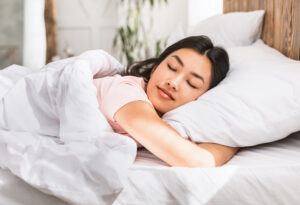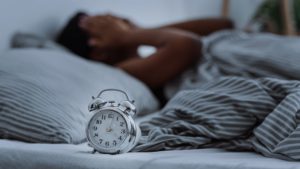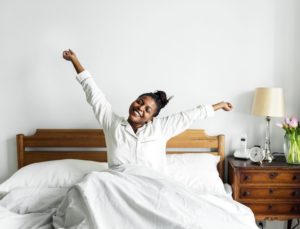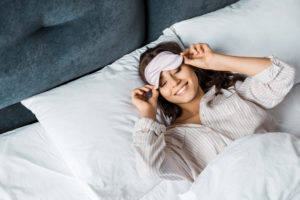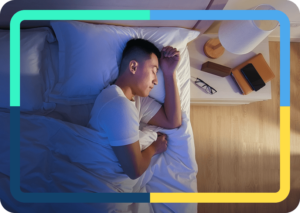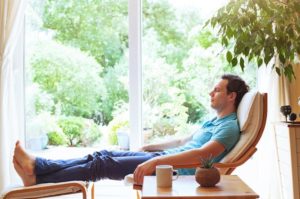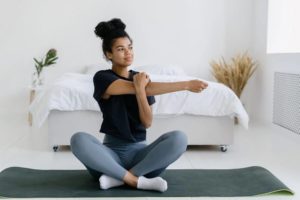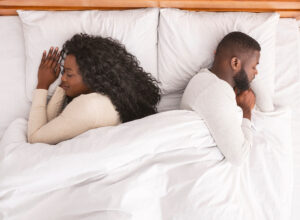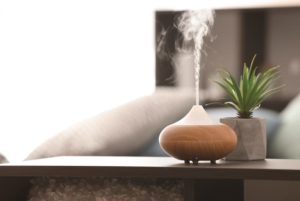When you buy through our links, we may earn a commission. Products or services may be offered by an affiliated entity. Learn more.
Bedtime Routines for Adults
- A daily bedtime routine is a series of activities you do in the half hour to an hour before bedtime.
- A bedtime routine can help create habits that tell your brain it is time to get ready for bed.
- Your nighttime routine could include turning off screens, meditating, reading a book, or adjusting your bedroom environment.
For those who do not get enough sleep on a regular basis, implementing a bedtime routine can provide a foundation for sufficient rest. A bedtime routine is a set of activities you perform in the same order, every night, in the 30 to 60 minutes before going to bed.
Your bedtime routine can be tailored to fit your specific needs and sleep environment. By incorporating sleep hygiene tips into your daily regimen, you can prime your body and mind for restful sleep.
Decide on a Set Bedtime
Your brain begins winding down for sleep a few hours before bedtime as part of your natural sleep-wake cycle. You can use your bedtime routine to optimize this transitional period between wakefulness and sleep. Decide on a bedtime and wake-up time that are most conducive to your schedule and stick to them every day, including on weekends. Following a consistent sleep schedule helps train your brain to naturally feel tired at bedtime.
Next, schedule a time to begin your bedtime routine every night, anywhere between 30 minutes to 2 hours before bed. Set a reminder alarm if needed.
“When evaluating sleep habits, the challenge becomes figuring out how to break the bad habit and having a plan in place if you falter. That plan must include forgiving yourself if you have slip-ups and making sure you only start with 1 or 2 routine changes at a time.”
Dr. David Rosen, Sleep Medicine Physician
Put Away Electronics
While watching television or scrolling social media may feel relaxing in the moment, electronic devices, including computers, televisions, smartphones, and tablets, all emit strong blue light. Blue light floods your brain while using these devices, tricking it into thinking it is daytime. As a result, your brain suppresses melatonin production and works to stay awake.
Put away electronics at the beginning of your bedtime routine. If you can, avoid using electronics in the evening as much as possible. Be sure to turn on your phone’s red-light filter well before your bedtime routine even begins, so if you accidentally look at it, it will not be as disruptive.
Have a Light Snack or Bedtime Tea
Heavy meals and alcoholic beverages before bed can lead to indigestion, acid reflux, and middle-of-the-night bathroom trips that disrupt your sleep. However, going to bed hungry can also upset your stomach and make it hard to fall asleep.
Find a healthy middle ground by calming your stomach with a light snack, like a piece of fruit or yogurt. Cherries, grapes, kiwi, rice, and nuts all have all been shown to help people sleep. Non-caffeinated herbal teas, especially ones with chamomile or lavender, are another nice way to calm the mind and induce sleep.
Looking to improve your sleep? Try upgrading your mattress.
Take a Warm Bath
As part of the sleep-wake cycle, your body experiences various metabolic changes throughout the day. One of these is melatonin production, which begins in the evening to prepare you for sleep, as well as a drop in your core body temperature.
Scientists have found that mimicking a nighttime drop in body temperature via a warm bath can trigger a similarly sleepy reaction. Consider taking a warm bath at least an hour before you go to sleep. Your body will heat up from the water, and cool down quickly as the water evaporates, creating a sensation that makes you feel tired and relaxed.
Listen to Music
Music can be a powerful relaxation tool. The genre is not important, so long as the music calms you. Close your eyes, listen to the music, and let it turn your attention away from worries and anxiety.
Other types of audio can be good for sleep too, like ambient sounds and white or pink noise. Pink noise, like rain or waves, has been shown to improve sleep quality, while white noise may help you fall asleep faster by masking other sounds. A number of streaming platforms offer curated playlists of white and pink noise.
Stretch, Breathe, and Relax
Relaxation techniques like deep breathing exercises or progressive muscle relaxation (PMR) can help release physical and mental tension, by turning focus toward your body and mindfully relaxing. A daily yoga routine has been shown to improve sleep quality, and a few simple stretches or a massage before bed can prevent cramping.
Practice Meditation
Like yoga, a regular meditation practice can improve your sleep quality. Mindfulness meditation teaches people to accept their thoughts and manage emotions, enabling sleep onset, rather than stressing about not falling asleep.
You can practice mindfulness meditation by simply closing your eyes and allowing yourself to focus on your thoughts and feelings. Observe your thoughts, but do not judge them. Deep breathing and visualization are other forms of meditation.
Read a Good Book
Reading is a common bedtime routine that often begins in childhood, and can promote healthy sleep into adulthood. When incorporating reading into your bedtime routine as an adult, stay away from exciting genres like suspense and action. A book with a plot that is simple or uneventful can be best. It is also best to read outside of the bedroom with soft lamp light. When your body feels tired, it’s a signal that it’s time to get in bed and go to sleep.
“Sometimes my patients will tell me my guidance about a bedtime routine is not telling them anything new. I always respond by stressing there is a difference between understanding a concept and really internalizing it as a part of your behavior. We all understand that exercise is important, but that doesn’t negate how hard it is to establish and maintain a habit of exercising regularly.”
Dr. David Rosen, Sleep Medicine Physician
Write Down a To-Do List or Journal
Many people find journaling restorative, and doing so in the evening helps sort out thoughts and feelings before bed.
If the idea of journaling overwhelms you, consider starting with a simple to-do list. One study found that taking five minutes before bed to jot down a quick to-do list of tasks that needed to be done in the following days significantly sped up sleep onset.
Prepare Your Bedroom
Your bedtime routine can include transforming your bedroom into a sleep oasis, making things as cool, dark, and quiet as possible.
Set the thermostat to somewhere between 65 to 68 degrees Fahrenheit. Turn off any noisy electronics. Dim the lights and pull down your blackout curtains. Put things away and remove clutter. Enjoy your favorite scent with an aromatherapy diffuser.
The final step of your bedtime routine should be getting into bed. Make this the very last thing you do, and once your head hits the pillow, do not do anything else other than try to fall asleep. Your bed should be a soothing place that is used specifically for rest.

Still have questions? Ask our community!
Join our Sleep Care Community — a trusted hub of sleep health professionals, product specialists, and people just like you. Whether you need expert sleep advice for your insomnia or you’re searching for the perfect mattress, we’ve got you covered. Get personalized guidance from the experts who know sleep best.
References
3 Sources
-
Cagnacci, A., Kräuchi, K., Wirz-Justice, A., & Volpe, A. (1997). Homeostatic versus circadian effects of melatonin on core body temperature in humans. Journal of biological rhythms, 12(6), 509–517.
http://journals.sagepub.com/doi/10.1177/074873049701200604 -
Bankar, M. A., Chaudhari, S. K., & Chaudhari, K. D. (2013). Impact of long term Yoga practice on sleep quality and quality of life in the elderly. Journal of Ayurveda and integrative medicine, 4(1), 28–32.
https://pubmed.ncbi.nlm.nih.gov/23741159/ -
Scullin, M. K., Krueger, M. L., Ballard, H. K., Pruett, N., & Bliwise, D. L. (2018). The effects of bedtime writing on difficulty falling asleep: A polysomnographic study comparing to-do lists and completed activity lists. Journal of Experimental Psychology. General, 147(1), 139–146.
https://pubmed.ncbi.nlm.nih.gov/29058942/



